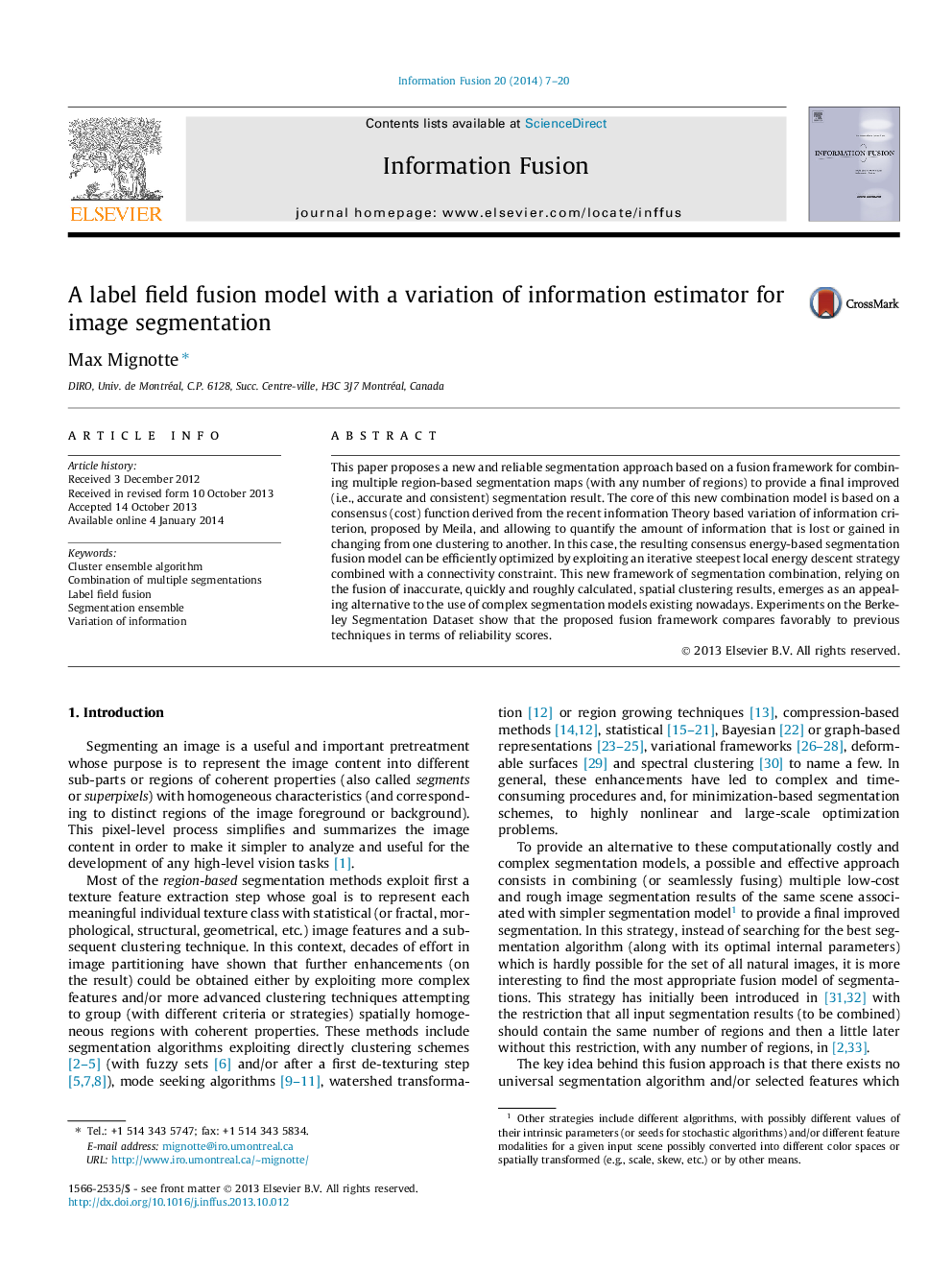| Article ID | Journal | Published Year | Pages | File Type |
|---|---|---|---|---|
| 528120 | Information Fusion | 2014 | 14 Pages |
This paper proposes a new and reliable segmentation approach based on a fusion framework for combining multiple region-based segmentation maps (with any number of regions) to provide a final improved (i.e., accurate and consistent) segmentation result. The core of this new combination model is based on a consensus (cost) function derived from the recent information Theory based variation of information criterion, proposed by Meila, and allowing to quantify the amount of information that is lost or gained in changing from one clustering to another. In this case, the resulting consensus energy-based segmentation fusion model can be efficiently optimized by exploiting an iterative steepest local energy descent strategy combined with a connectivity constraint. This new framework of segmentation combination, relying on the fusion of inaccurate, quickly and roughly calculated, spatial clustering results, emerges as an appealing alternative to the use of complex segmentation models existing nowadays. Experiments on the Berkeley Segmentation Dataset show that the proposed fusion framework compares favorably to previous techniques in terms of reliability scores.
Graphical abstractFigure optionsDownload full-size imageDownload as PowerPoint slideHighlights•A new fusion model which aims at combining multiple segmentations to achieve a final improved segmentation is presented.•The proposed fusion model is based on a consensus function derived from the variation of information criterion.•The resulting consensus energy-based segmentation fusion model is optimized by a steepest local energy descent combined with a connectivity constraint.•Experimental evaluation on the Berkeley database demonstrates the efficiency of this model.
